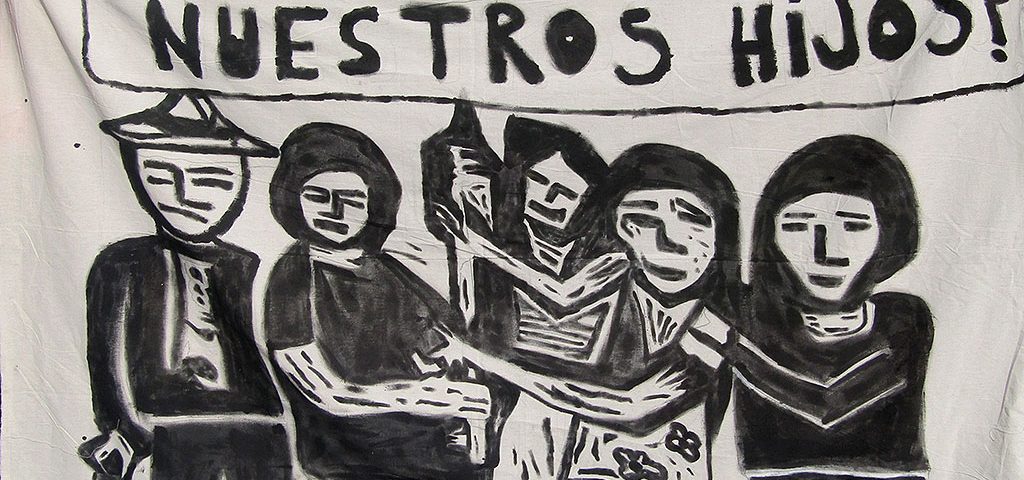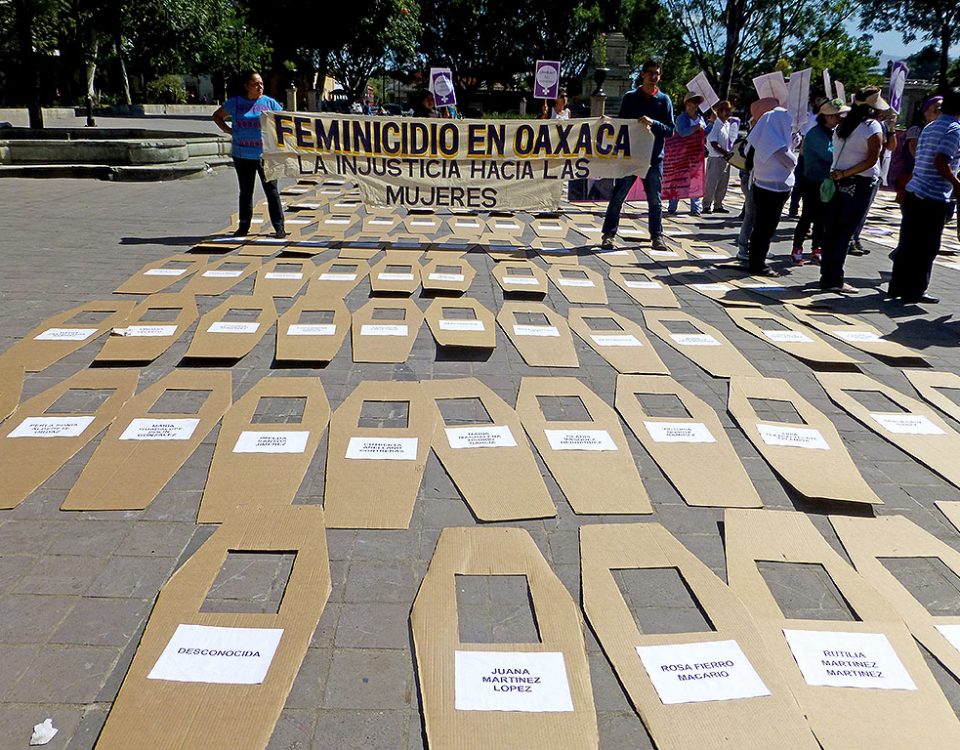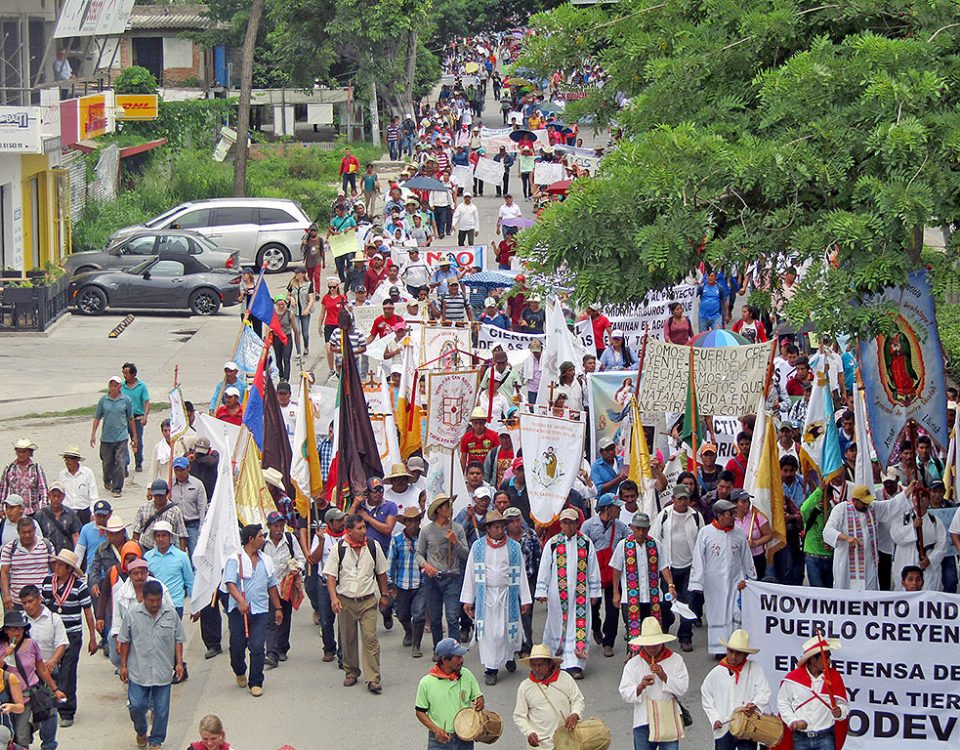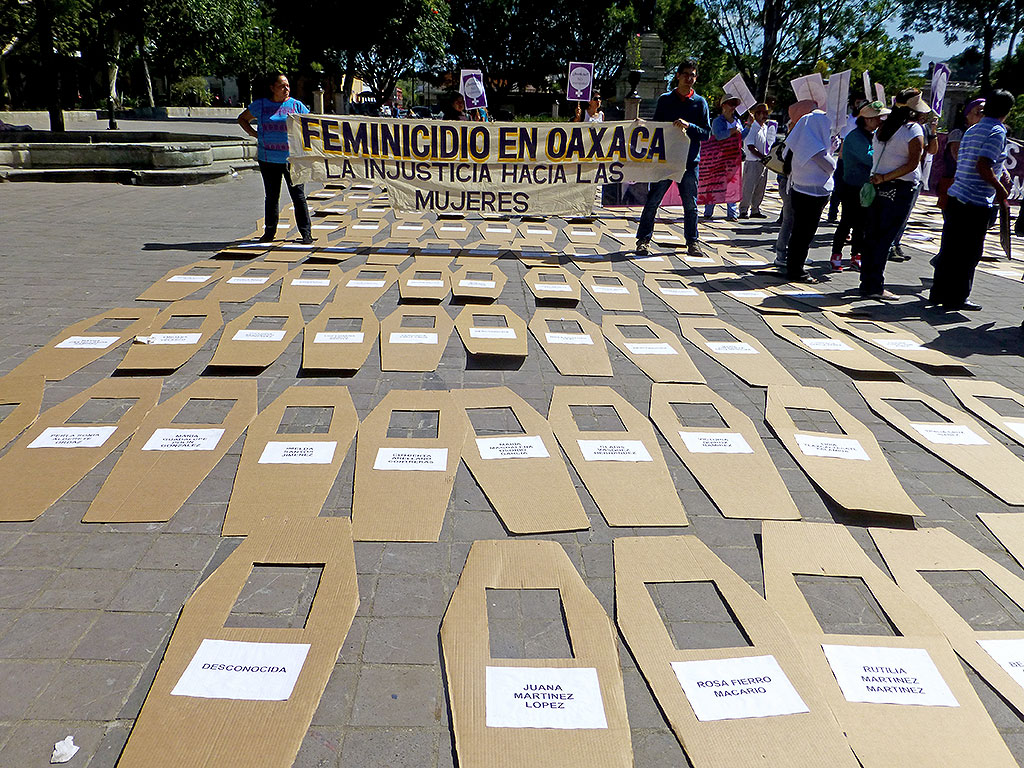
FOCUS: Gender violence alerts: understanding the problem to be able to deal with it
26/09/2017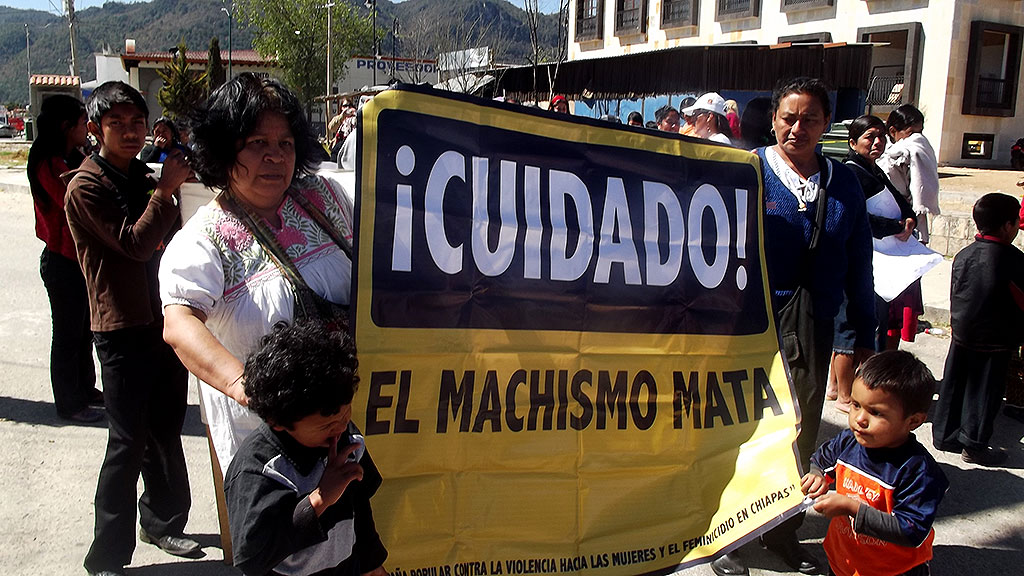
SIPAZ ACTIVITIES (from mid-May to mid-August 2017)
26/09/2017On August 8th and 9th, in the framework of the 23rd anniversary of the Tlachinollan Mountain Human Rights Center, the Forum on forced disappearance “Against Pain and Fear: a Cry of Hope” took place in Chilpancingo.
On this occasion, experts on the subject, representatives of international and national organizations, as well as committees and relatives of missing persons participated in the debate on the General Law on Forced Disappearances and Disappearances by Individuals, to share their experiences and strengthen themselves to continue the search for the reappearance of their loved ones.
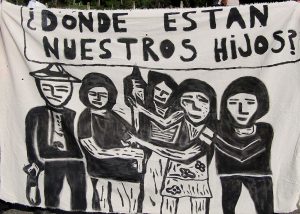
“Where are our children?”, banner in the context of a mobilization against forced disappearances © SIPAZ Archive
The draft General Law on forced disappearances is the result of a proposal issued in 2015 by a large group of representatives of families, civil society organizations, and academics with wide experience in various human rights issues. Together they developed a document to guide the Mexican authorities on how to effectively implement, in their legislation and in practice, their obligations under the International Convention for the Protection of All Persons from Forced Disappearance (ICPAPFD) and the Inter-American Convention on the Forced Disappearance of Persons (IACFDP), as well as other international human rights standards. This document is entitled “Essential elements for the elaboration of the general law on missing persons in Mexico” and their authors are the protagonists of change, they fight for life and justice, to find the whereabouts of their loved ones, reveal the truth, to obtain integral reparation, to prevent new disappearances from occurring in the country and to end the pain that oppresses them.
On April 27th, 2017, after weeks of negotiations, the General Law on Forced Disappearance in Mexico was approved. It was labeled as “disheartening” by many groups of victims and relatives of disappeared persons, due to important omissions and cuts that the Senate applied to the original proposal. One of the central demands in the initial draft was the creation of a National Commission for the Search of Missing Persons (CNBPD in its Spanish acronym), which would include both government officials and representatives of missing persons’ family members (national as well as migrant ones), nongovernmental human rights organizations (NGOs) and academics. The Act approved by the Senate, however, determines that the CNBPD will only be composed of government officials. The denaturalization of the initial proposal divided the group that propelled it. The organizations that carried out the National Campaign Against Forced Disappearance (CNCDF in its Spanish acronym) concluded that they cannot endorse the bill’s ruling because of its many shortcomings. “We are faced with an incomplete bill that, if approved, will require several reforms that will delay its actual implementation. This law does not favor knowledge of the truth because there is no search commission and it also propitiates impunity because there is no punishment for the chain of command behind a disappearance” (Zita Loyo member of the CNCDF). The Movement for Our Disappeared in Mexico (MNDMX in its Spanish acronym) preferred “50% of something now to 100% of nothing”. They have agreed to continue demanding that the government reformulate it in the future. MNDMX spokeswoman, Yolanda Moran Isais (whose son was disappeared by military intelligence), explained, “We were urged to have the law, because if we did not get it right now, we would not be able to get anything because of the forthcoming elections in the states, then the selection of candidates for 2018 and then the elections of 2018; we believed that if it did not come out in this period we were going to delay in passing it or they would just sit on it like other laws.” She regretted that the senators and the Executive “were left in debt” to the families on major issues.
In order for this “short” law to be definitively approved, the approval of the Chamber of Deputies is needed. It is noteworthy that despite the disagreement between the families of the disappeared as to whether or not to accept the Law, all agree that this law will not be the solution, but only one more tool in the search for their missing and their strength will remain the tenacious struggle.
In Mexico, according to the National Registry of missing persons, there are more than 32,000 victims. Of the disappearances registered by the Attorney General’s Office (PGR in its Spanish acronym), that is to say, the federal court, 58% are observed in only three states, Guerrero, Tamaulipas and Veracruz. 46% of the total registrations (common law and federal jurisdiction) correspond to disappearances of young people between 10 and 29 years of age! This constitutes a crisis of forced disappearances in Mexico.
Forced disappearance is a crime that deprives a person of his or her freedom, hiding them and denying any information about their whereabouts. For this reason, it is considered a serious and permanent multiple violation of several human rights: the right to freedom, recognition of one’s juridical person, personal integrity, the right to life, prohibition of torture and cruel, inhuman and degrading treatment. Tlachinollan highlights its qualification as a crime against humanity. It is a permanent affectation whereby not only the victim suffers, but also their relatives who are being violated their right to access to truth and justice. It is these families and groups that had the voice during the forum to share how they have faced the crisis in states where “there is really no state of law.” “The government and the Executive Commission for Victim Assistance (CEAV in its Spanish acronym) are betting that we tire and close our files. We have to do everything, we became lawyers, experts, investigators, accountants, because our representatives do nothing,” said a relative of a missing person during the forum. These groups and families have been able to cope with the crisis with their citizen searches, for example, they have located hundreds of bodies, obtained their identification and have returned peace and rest to both the victims and their families. It is these groups and families who have the strength, who have managed to generate this light of hope for thousands of people who go through the same situation. It is these groups and these relatives who, articulating and exchanging their strategies, are becoming stronger in the face of the wall of impunity.

